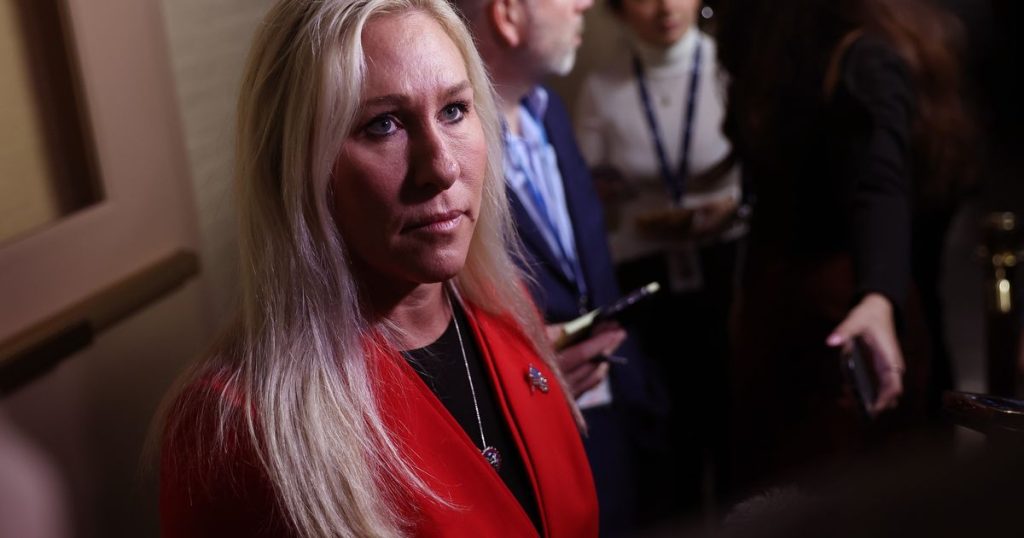Rep. Marjorie Taylor Greene is threatening to trigger a no-confidence vote against House Speaker Mike Johnson due to his perceived lack of bargaining with Democrats. Greene and other House hard-liners are upset that Johnson allowed a funding bill to pass with Democratic support, believing that Republicans could have forced Democrats to accept GOP policy priorities. Greene previously filed a resolution to oust Johnson but did not force a vote, describing it as a warning. In her recent letter, Greene hinted that Johnson’s fate may depend on whether he allows the House to vote on a $60 billion military aid package for Ukraine, which she and other far-right Republicans oppose.
The prospect of another leadership squabble in the House of Representatives has caused concern among lawmakers, with memories of the chaotic situation that ensued last fall when Rep. Matt Gaetz forced a referendum on Johnson’s predecessor, former Rep. Kevin McCarthy. At that time, eight Republicans voted with Democrats to declare the speaker’s office vacant, causing the House to be without a leader for three weeks until Johnson was eventually chosen. Greene did not support ousting McCarthy in October, but her current threat against Johnson could lead to a similar bipartisan outcome if a vote is forced.
Despite not yet invoking the privilege to force a vote, Greene has made herself the center of attention at the Capitol and is pushing for her concerns over Johnson’s leadership to be addressed. It remains unclear if enough Republicans would support Greene’s resolution to oust Johnson, as well as whether some Democrats would vote against it to save the speaker. The situation is complicated by the lack of a clear alternative to Johnson as speaker and the potential for another period of chaos in the House if a vote were to take place.
In the midst of this potential leadership crisis, the focus has shifted to whether Johnson will allow a vote on a military aid package for Ukraine amid Russia’s invasion. Greene and other far-right Republicans oppose the aid, citing polling data that shows a majority of Americans prefer a peace deal in Ukraine over sending more tax dollars. However, a separate survey indicates that a majority of Americans believe the U.S. should take a more active role in the Ukraine-Russia conflict. The decision on whether to allow a vote on the aid package could influence Johnson’s future as speaker, with Greene implying that his handling of this issue may determine her next steps in pursuing a no-confidence vote.
The possibility of a no-confidence vote against House Speaker Mike Johnson highlights the ongoing Republican infighting within the House of Representatives. Greene and other far-right Republicans are critical of Johnson’s leadership, particularly his handling of negotiations with Democrats on key issues such as the recent funding bill and military aid for Ukraine. The potential for another chaotic leadership struggle, similar to what occurred last fall when the speaker’s office was temporarily vacant, raises concerns among lawmakers about the effective functioning of the House and the potential bipartisan fallout of a vote against Johnson. It remains to be seen whether Greene will ultimately move forward with her threat and if Johnson’s response to the Ukraine military aid issue will impact the outcome of a potential no-confidence vote.


